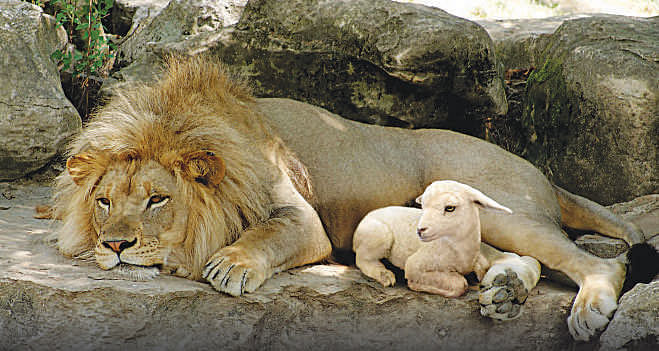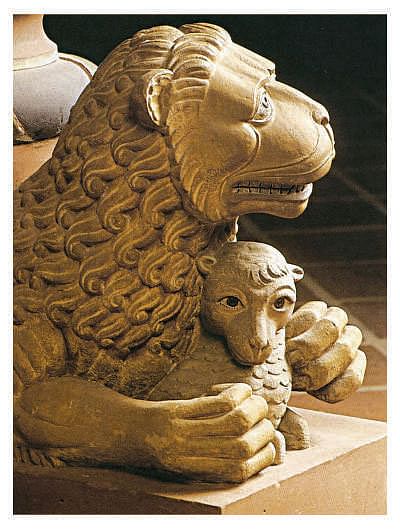CAN THE LION & THE LAMB COEXIST?

The world of the German philosopher, Friedrich Nietzsche had no ethics and morality. It was a world of anarchism. If a lion and a lamb were put in the same room, the lion shall eat the lamb. Ethics and morality, Nietzsche argued, were created by the weak (lambs) to protect themselves from the strong (lions). Adding ethics and morality we could state: the lion should not eat the lamb because the latter is weak and will never threaten the former. Could it be possible that the lion and the lamb coexist on their own terms? In 1986, Game Theorists Drew Fudenberg and Eric Maskin showed it is possible using the Folk Theorem.

Let there be two groups: the strong and the weak. They live in two separate worlds. There is no government and there are no social rules implementing ethics and morality. The weak produce 10 units through agriculture. The strong produce 20 units through hunting. This carries on till one day somebody in the strong group travels to the world of the weak. He reports back to the head of the strong that a world exists where people don't hunt food. They produce it, but they don't have an army to protect themselves. Eureka! Let's go and attack the weak says the head of the strong. The cost of the army is 3 units. The strong visit the weak and steal all their crops. In the end, the strong produce 20+(10-3)=27. This is more than the 20 they were producing earlier. The weak earn nothing since they lose all their crops. Nietzsche was right. Anarchism! The strong shall exploit the weak if they can. This is the rule of nature, after all.
At the beginning of the next harvest, the strong visit the world of the weak again. The weak rightly predicted that the strong would make a return trip. The weak decided not to produce any crops. The weak may be weak, but they aren't fools. They eat nuts and berries from the trees. By doing so, they still produce 4 units since they don't starve to death. The strong find they don't earn the 10 units of food the weak produced the previous year. The cost of raising their army goes to waste.
If this game is played many, many times, the weak will realise they can't carry on eating nuts and berries forever and produce only 4 when they have the potential to produce 10 from agriculture. The strong also realise if they steal the entire crop of the weak each time they produce, the weak will never have an incentive to produce. Maintaining an army will become pointless for the strong. If two parties meet each other many times, they can both benefit from trade even if one party is strong and the other is weak. This is known as the 'Folk Theorem'. Here's how it works.
When the weak produce, they have 10 units. When they don't produce, they have 4 units. The weak thus have a surplus of 6 units which they can trade with the strong. The weak propose to the strong to share their surplus through beneficial trade, but if the strong steal their entire output, the weak will forever produce nothing. The strong now have an incentive for the weak to be productive by gaining some of their surplus. The weak have an incentive to being better off than eating nuts and berries forever.
In Nietzsche's world of anarchism the strong exploit the weak. Nietzsche didn't see the weak and the strong meeting numerous times. When there's a possibility of anarchism, problems between unequal parties can be resolved through negotiation if both are willing to understand they shall meet again. That is, when both care about the future. If only the decision-makers in the real world realised this! Tomorrow's world may not be the best of all worlds, but it would certainly be better than what it is today.
Asrar Chowdhury teaches economic theory and game theory in the classroom. Outside he listens to music and BBC Radio; follows Test Cricket; and plays the flute. He can be reached at: [email protected]

 For all latest news, follow The Daily Star's Google News channel.
For all latest news, follow The Daily Star's Google News channel. 



Comments